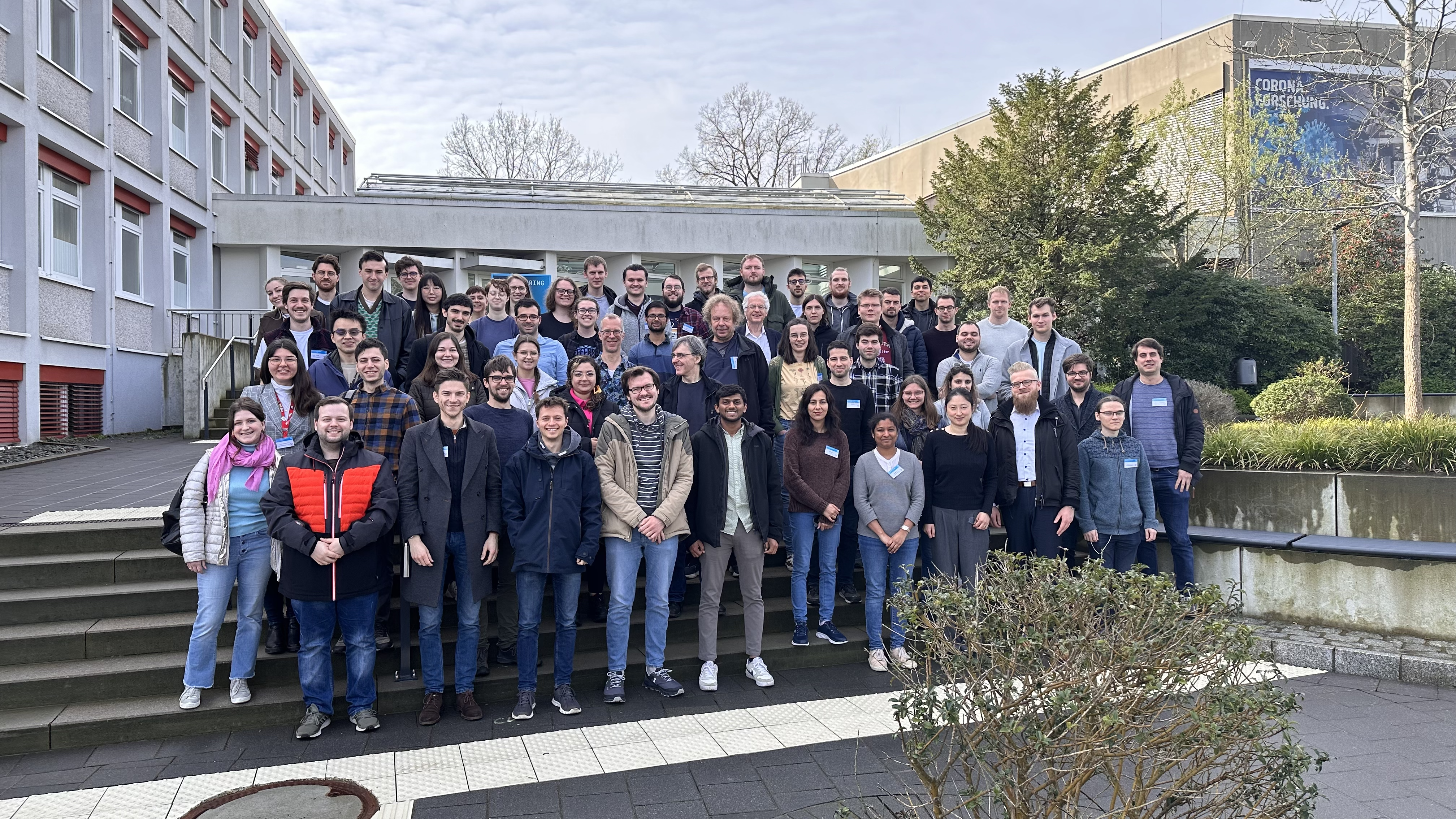Terascale Statistics School 2024
→
Europe/Berlin
Seminarraum Flash (DESY Hamburg)
Seminarraum Flash
DESY Hamburg
28c
, , ,
Description
This is a course on statistical methods in particle physics mainly targeting PhD students but it is open to other interested students and post-docs. The school covers key analysis tasks in theory and practice as well as going deep with lectures into some specific areas of high relevance.

It is expected that you bring your own laptop for the hands on sessions.
The school fee is 80 Euro.
Find here a DESY map with the relevant school places
Organizing Committee:
I. Henning, A. Hinzmann, D. Kruecker, I. Melzer-Pellmann, O. Behnke
Terascale School Support
Participants
Alessandro Boschetti
Andrea Pareti
Anna Tegetmeier
Anna Vorländer
Asa Nehm
Asit Srivastava
Ben Cattermole
Benedikt Gocke
Can Suslu
Cloe Girard-Carillo
Cristina-Andreea Alexe
Emerson Bannister
Erik Bachmann
Filippo Cattafesta
Florian Harz
Glen Cowan
Ilias Tsaklidis
Ioana Caracas
Jess Lock
Katharina Lachner
Keila Moral Figueroa
Lara Markus
Lukas Kretschmann
Marijus Ambrozas
Martin Bartl
Mathis Frahm
Michael Windau
Nathan Prouvost
Nico Härringer
Nilima Akolkar
Olaf Behnke
Patrick Connor
Patrick Dougan
Paul Vaucelle
Raimundo Hoppe Elsholz
Roger Barlow
Sadia Marium
Saverio Monaco
Tatiana Selezneva
Tilman Plehn
Tim Frederik Beumker
Tommaso Cresta
Vincent Croft
- +26